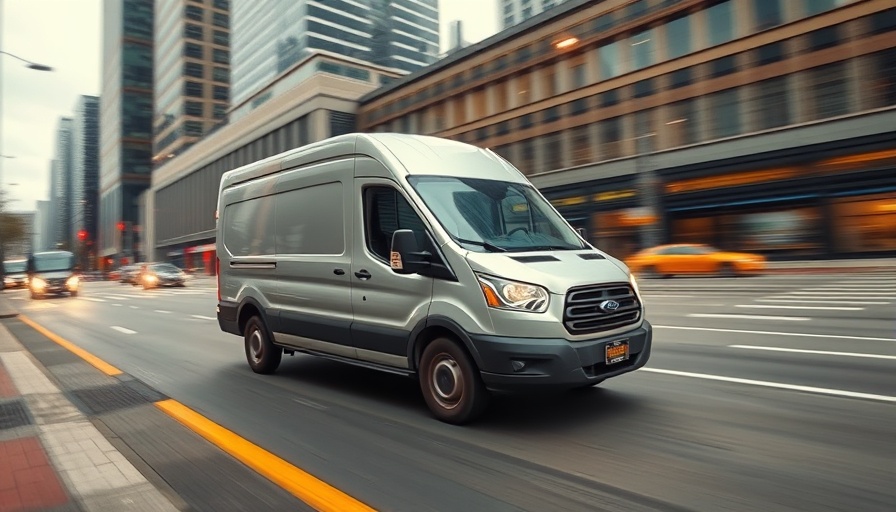
The Dilemma Behind the ZEV Mandate: Sales or Mis-selling?
The UK has made strides in embracing electric vehicles through the Zero Emission Vehicle (ZEV) Mandate, but the latest reports reveal a stark gap in expected and actual van sales. Industry insiders warn that without a surge in momentum, not only will targets be unmet, but future investigations into mis-selling practices might loom over van sales.
What Are the Real Targets and Current Sales?
Currently, the government target for zero emissions in vans is 16% for 2025. Yet, figures released by Peter Golding, MD of FleetCheck, indicate that the best sales month thus far has barely grazed the 10% mark. With projections indicating the target needs to ramp up to 24% by 2026, the uphill battle for the industry becomes clearer.
Challenges of Electric Vans Compared to Internal Combustion Engines
One critical element not to be ignored are the inherent challenges electric vans face compared to their fuel-powered counterparts. Vehicle customers weigh functional utility above all else; as Andy Picton of Glass's highlights, electric vans often fall short on key performance criteria such as payload capacity, tow capabilities, and operational range.
Industry Leaders Speak Out: The Fine Line of Encouragement vs. Mis-sell
Steve Bridge of eStar Truck and Van articulated a profound obligation that stands among dealers: balancing the push to meet sales targets without misleading customers about the suitability of electric vans for their needs. The sentiment reflects an overarching concern within the industry: if pushed too hard, dealers may mis-sell products just to satisfy governmental expectations.
The Future of Electric Van Adoption: Shifting Consumer Mindsets
As we inch closer to 2030, it’s crucial for manufacturers and dealers alike to shift consumer perceptions. Electric vans currently represent approximately 10% of sales in some dealer showrooms, as indicated by Bridge's insights. The journey towards 16% by 2025 will not only involve product enhancements but also convincing operational teams and businesses why sustainability should lead their decision-making. This requires tackling misinformation about electric vehicles and ensuring that the transition doesn’t translate to compromises.
The clock is ticking and while there are efforts underway to navigate the complexities of the ZEV mandate, there’s a clear call to action: manufacturers and industry stakeholders must closely evaluate how they communicate the responsibilities of electric vehicles to their customers. The consequences of mis-selling in this evolving landscape can be profound, not only for business reputations but for the overarching goal of transforming the automotive industry towards a greener future.
 Add Row
Add Row  Add
Add 




 Add Row
Add Row  Add
Add 

Write A Comment